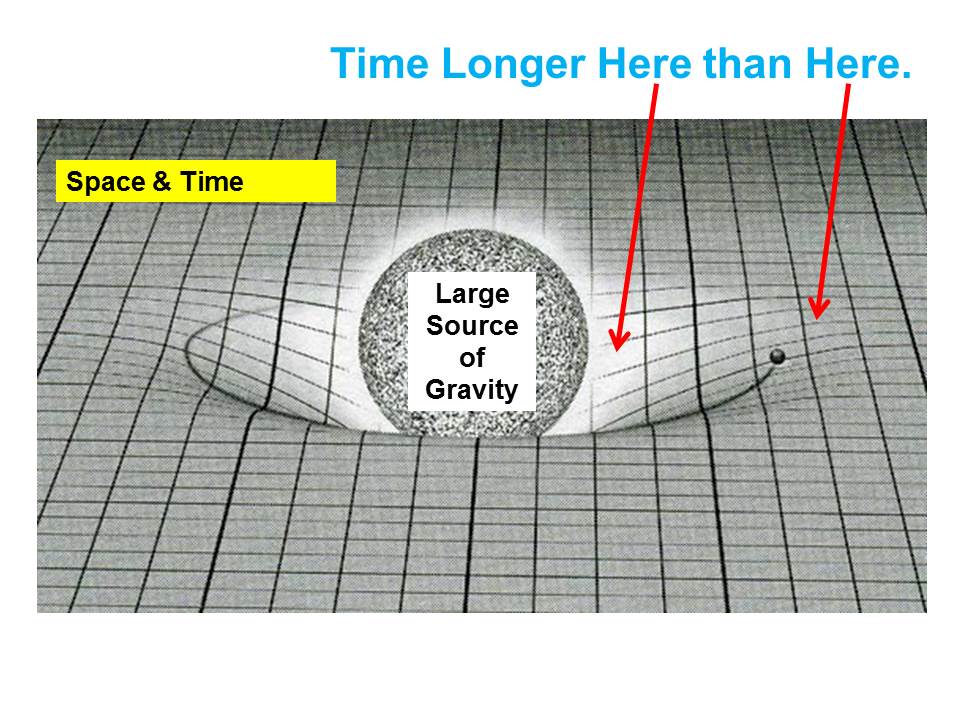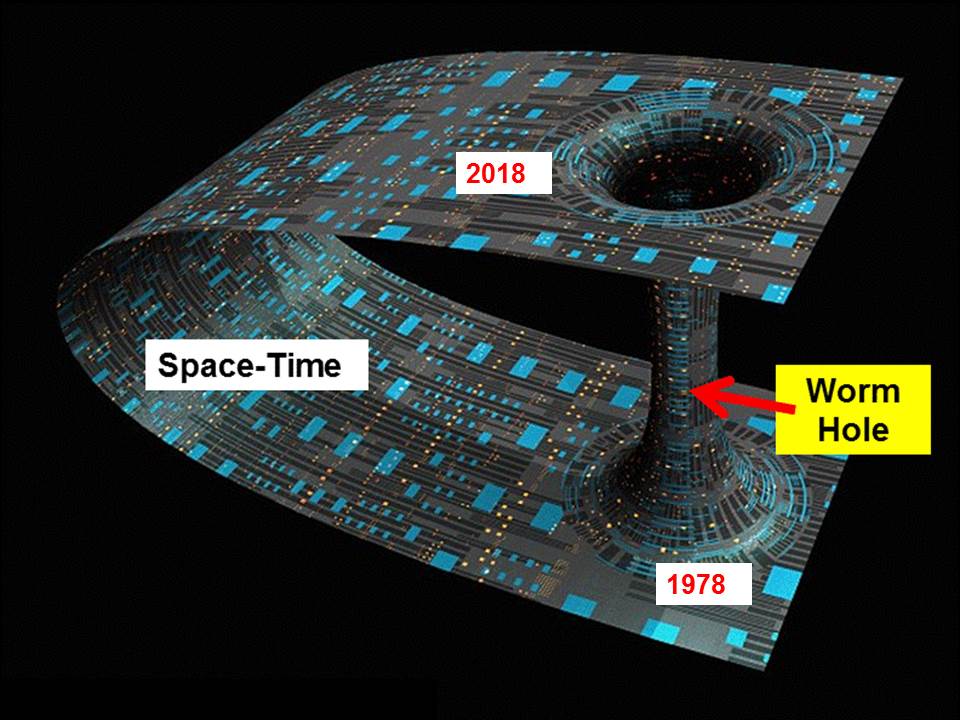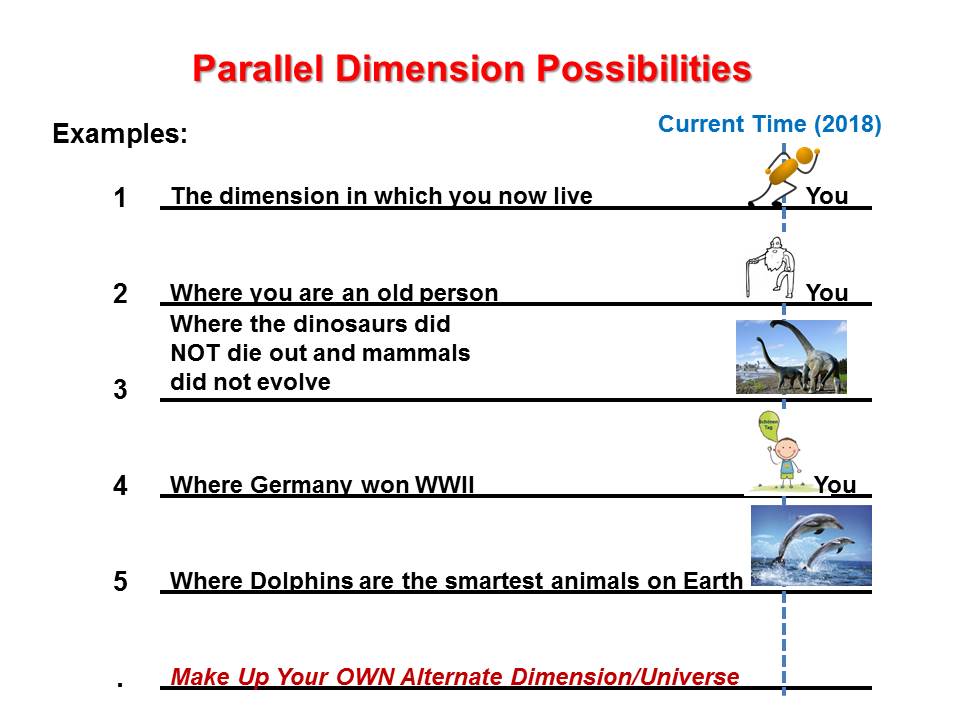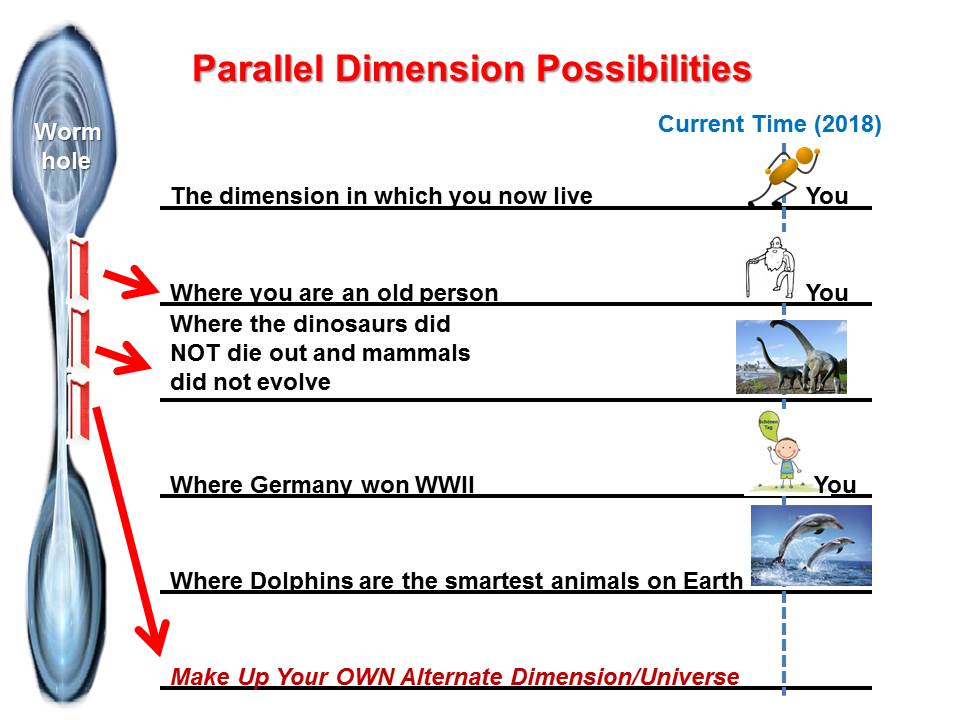
The answer to that question is not simple. For all practical purposes, the answer is NO - at least not today Who knows what the future might bring. But, if we're talking about theory, and only theory, the answer is YES.
Yep, that wasn't very helpful. Right?
So, let's look at time travel and what's really involved.
What do I mean by time travel? "Going forward or backward in time"; as in going back to the time of the pyramids to see how they were actually built, kind of thing. Or, going ahead 20 years to see what you will be doing then.
H.G. Wells in his story "The War of the Worlds" had a great line: "..across the gulf of space, minds that are to our minds as ours are to those of the beasts..." Compared to me, that's how I feel about Albert Einstein and other scientists and mathematicians who have come up with theories that predict that time travel is possible.
Thoughts of the possibility of time travel are probably as old as when humans first developed the ability for rational thought. Have you ever said to yourself, "Gee! I wish I could go back and change what I did yesterday. I really shouldn't have done that."
Time travel has been the subject of books, movies, old-time radio shows, TV shows, etc. It is an exciting possibility. From people's imaginations, thinking about time travel, have come "Time Paradoxes". The most famous is the "Grandfather Paradox": If you go back to the time of your grandfather, before your parents were born, and kill him, then you would never have been born and, thus, you couldn't have come back in time in the first place.
The potential for a time paradox is even worse than that: Suppose you go back in time to when dinosaurs roamed the Earth and accidentally stepped on a small animal, or lizard, or such. You may have accidentally killed the one animal that eventually, via evolution, gave rise to humans. SO, you couldn't have been born (nor anyone else you know either), and, therefore, you couldn't have traveled back in time.
We actually can see back in time, we just can't go there yet. In fact, everything we see happened back in time. I did an article on this, "How Far Can You See". If you've not seen it or don't remember it, it will be helpful if you check it out before going further here. It discusses the speed of light and other things which will be discussed below.
Scientists and mathematicians can "do the math" and prove all kinds of things are possible, but the real world awaits exactly how it would be accomplished. So it is only with mathematical calculations that the possibility of actual time travel can be visited.
An example of something mathematicians/scientists actually use that doesn't really exist - and can't - is what is called an imaginary number. Good name for it, eh?
An example of an imaginary number is the square root (i.e., √) of -9, or ( √-9). As we learned in math, a number multiplied by itself forms a "square" of the number. And the √ of a number is the reverse. Also remember that 2 negative numbers multiplied together give you a positive number. So, you could really never have a negative number be a square.
But, they found uses for imaginary numbers anyway. They are used in math and in electrical engineering to solve complex problems - even though they don't exist in reality.
As a note here, the symbol used denote an imaginary number in math is the letter "i", and i = √-1. In electronics the same √-1 is referred to as the letter "j" - in electronics the letter "i" was already associated with electrical current.
Now, as to why actual time travel, in theory, is possible:
These theories have to do with the speed of light, gravity, and the mass of objects actually affecting the way we perceive time. We normally perceive time as a constant; one hour on Earth is the same as one hour in space. It is not.
The faster you go and the farther you are from the gravitational effect of the Earth (or other large body), the slower time actually passes. I know this may sound ridiculous; but it is really true.
Our GPS satellites had to have adjustments made to their clocks to compensate for this phenomenon. Oh, as close to Earth as these satellites are, the adjustments were VERY small; but had to be done to assure a proper reporting of location by the GPS systems.
In fact, a clock on the surface of the Earth will run slower than a clock up on a mountain - the effect of gravity is less the farther from Earth's center you are. And, that affects the measurement of time passing. The measurement of time is also affected differently, and much more so than just by gravity, if a clock is moving; because the faster we go the slower time moves. For a more lengthy explanation of this, CLICK HERE - this aspect of time is called "Time Dilation" combined with "Relative Velocity Time Dilation.
Unless one is moving VERY fast and VERY far away, the time differences are VERY small. For example, on the International Space Station, if a person spends a year up there, the person on the space station will be only .01 seconds younger than a person who has stayed on Earth for the same amount of time. That means that the person on the space station, upon their return, will see the Earth .01 seconds in the future relative to them.
Based on the "math", if you are traveling at 1/2 the speed of light for a period of 10 years, away from the Earth and back, the time here on Earth actually will be some 20 years later. So, you could basically travel into Earth's future. But, you would be traveling at 93,141 miles per SECOND. Hardly feasible these days. So, today such a trip is not possible.
Traveling back in time is another matter. According to these really smart mathematicians, travelling back in time would require faster-than-light-speed. And, according to Einstein, speeds faster than light are not possible.
So, in order to travel back in time some other concept was needed. What was that, exactly? That is what is called a "wormhole".
Before getting into wormholes, sometimes TV shows and movies will surprise you. According to Einstein, speeds faster than light are not possible.
In the original TV show 'Star Trek', they were able to travel faster than light using what they called "tachyons". Sounded, of course, like something the writers made up to solve their "faster-than-light" problem - pure fantasy.
Actually, "tachyons" are theoretical particles that have properties allowing for faster-than-light movement. The writers didn't just make this up, they based their premise on real science.
Back to wormholes:
Einstein and others have concluded that gravity actually bends time. The closer you are to a large gravity field, the slower time moves. Such actually "warps" space and time.


I have a problem with this theory. And, maybe it is because I just don't know enough. BUT, . . .
Using the above "warped" space-time concept, one is warping CURRENT space and time. Yes, time would slow down, even a lot, in some places; but it wouldn't cause time to run backwards.
You may be able to travel across the universe very quickly; but your destination would be in the same relative time as you.

But, even assuming that such a wormhole (within our own universe) could be fashioned somehow, there are other issues with traveling back in time.
One, there is a question of not only when one would arrive, but where.
The Earth travels about the universe at 1.3 million miles per hour. So, if you wanted to visit ancient Egypt, for example, during the building of the pyramids, the "back then Earth" would be located some 68,328,000,000,000 miles from where you started.
I feel pretty certain that winding up in the middle of space some 68 trillion miles from Earth might not be too much fun.
And second, a different type of "where" question exists. Let's say you wanted to visit the Appalachian Mountains several million years ago - just to see what they were like. So, you head out to the Appalachians and go to the highest peak with your handy dandy time machine. You set the "go-back-to-time" for the right period and hit the "GO" button.
Sure enough, you're in the Appalachian Mountains several million years ago. But, you would find yourself about 23,000 feet under rock and dirt. The Appalachians, at their highest, now are about 6,700 feet high. At the time you traveled to they were 30,000 feet high.
A third issue is the "1st Law of Thermodynamics" which states that the sum total of energy in the universe is constant. Mass and energy are interchangeable with each other via Einstein's E = MC squared, where "E" equals ENERGY, "M" equals MASS (think of mass as matter/physical stuff), and "C" equals the SPEED OF LIGHT.
Therefore, if you were to transport yourself to a time in the future or the past, the current universe would be left with missing energy/mass (i.e., it would be missing YOU) - a "NO-NO".
Of course, there is an entirely different type of time travel that has also been theorized - parallel dimensions. It is not exactly the way we normally think of time travel, but it is interesting nonetheless.
Let's say that you are trying to decide in what to major in college. Your 2 choices are engineering and law. You finally choose law. You become a lawyer, set up practice, fall in love, get married, have children, etc., etc., etc.
But, suppose you had chosen engineering. Your whole life would be different; different job, different friends, different experiences, etc.
Advanced math, especially in quantum mechanics, suggests that there could exist parallel dimensions (or universes, or "Mulitverse" as some call it) where, along with your life as a lawyer there is a parallel universe where you exist as an engineer.
There could literally be an infinite set of parallel dimensions/universes out there.


And, GOOD LUCK WITH THAT. There was a Sci-Fi TV show, "Sliders", which dealt with alternate dimensions (as well as many, many other shows). The problems they encountered dealt with getting back to the dimension they came from - they didn't know how.
Reference Links for Further Research (If Desired):
http://www.1728.org/reltivty.htm
http://www.businessinsider.com/do-astronauts-age-slower-than-people-on-earth-2015-8
https://gizmodo.com/yes-time-travel-is-possible-heres-how-1654958816
https://www.space.com/21675-time-travel.html
https://www.livescience.com/42748-imaginary-numbers.html
https://www.nationalgeographic.org/encyclopedia/weathering/ was 30,000 ft, 6,684 ft now,
http://www.statisticshowto.com/imaginary-numbers/
https://astrosociety.org/edu/publications/tnl/71/howfast.html